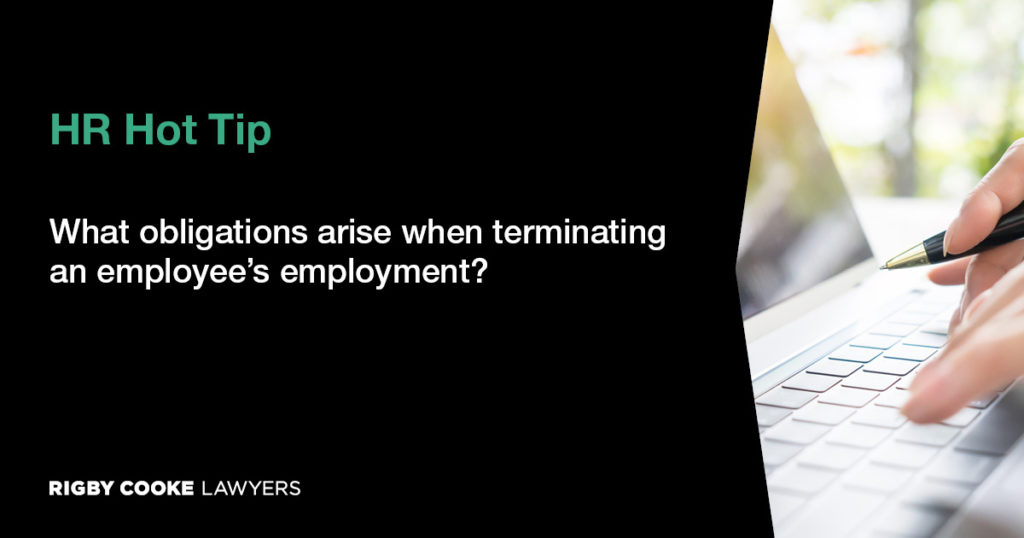Welcome to our series of HR interviews with Lawyer Monika Nosal who answers some of the most common questions asked by HR managers regarding employees’ legal entitlements.
The decision to terminate an employee requires an understanding of a range of legislative and other obligations by employers. Generally, when terminating an employee’s employment:
- There must be a valid reason for the termination.
- The employee must be given written notice of the day of the termination ending their employment (although some exceptions apply).
- The employee must either be given the minimum period of notice required under the National Employment Standards or paid in lieu of notice. Where a longer period of notice is stipulated in the employee’s employment contract, the relevant modern award or enterprise agreement, then that period of notice must be given.
- The employee must be paid their outstanding wages and accrued entitlements, such as untaken annual leave and long service leave. Most modern awards provide that employers must pay employees their final payment within seven days of the employment ending.
- Documentation requirements must be complied with. For example, in some circumstances, employers are required to complete an Employment Separation Certificate.
Different rights and obligations arise when an employee’s employment is terminated for reasons of redundancy or when the employer’s business is liquidated.
Different rules for termination also apply to small businesses.
Employers obligations under the National Employment Standards, modern awards, enterprise agreements and contracts can be complex, overlapping, and at times confusing.
Employers need to familiarise themselves with and understand their legal obligations in order to avoid any possible claims by employees (both existing and former) and unsuccessful job applicants, as well as prosecution by the Fair Work Ombudsman. Under the accessorial liability provisions of the Fair Work Act 2009 (Cth), employers and individuals such as directors and HR managers can be personally held accountable for breaching workplace laws in certain circumstances.
A HR Legal Audit conducted by Rigby Cooke can provide the HR function and, in turn, provide employers with comfort in knowing that they are legally compliant, or at least provide advance warning of any potential compliancy issues before they become problematic.
| Disclaimer: This publication contains comments of a general nature only and is provided as an information service. It is not intended to be relied upon as, nor is it a substitute for specific professional advice. No responsibility can be accepted by Rigby Cooke Lawyers or the authors for loss occasioned to any person doing anything as a result of any material in this publication.
Liability limited by a scheme approved under Professional Standards Legislation. ©2020 Rigby Cooke Lawyers |

